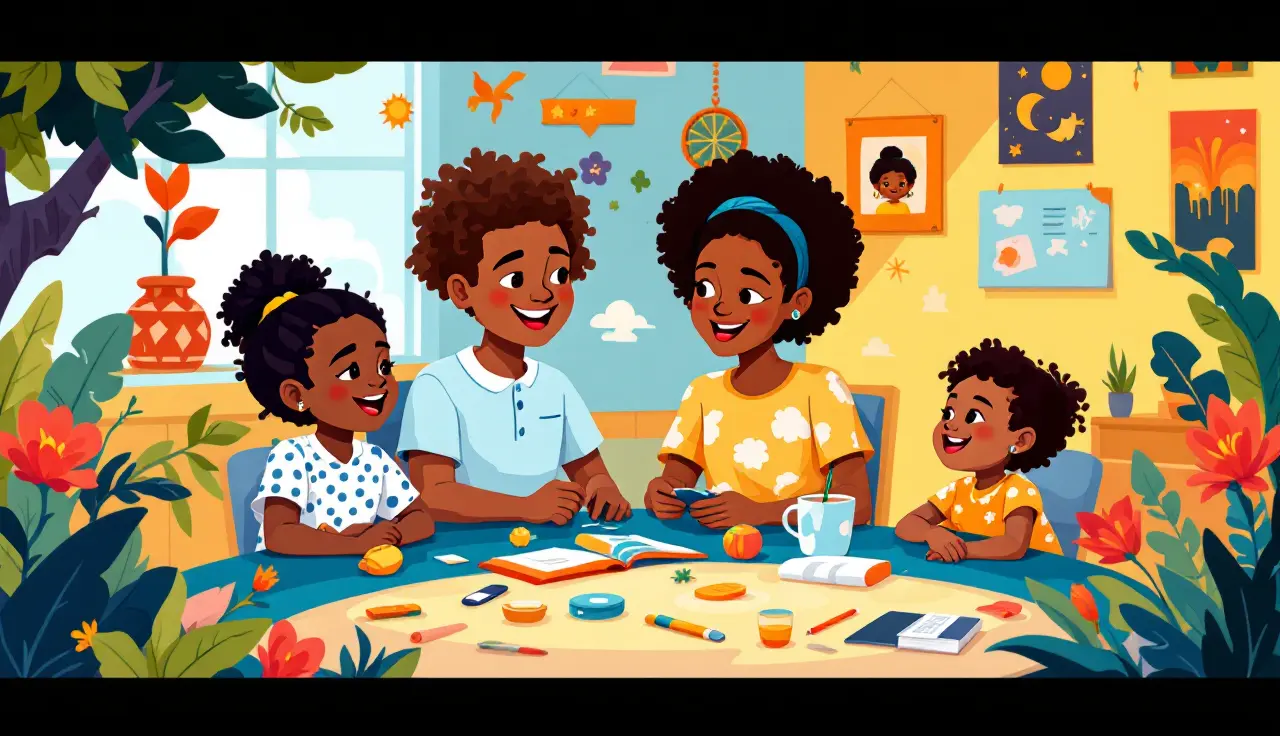By Lionel Kubwimana
••8 min read
Turn surprising DNA results into family bonding time with easy ways to teach heritage languages at home. Simple daily tips that busy African diaspora parents actually use.

Remember when you opened that DNA test envelope? Maybe you expected to see 100% Nigerian or Ghanaian. Instead, you found surprises—15% Portuguese, 8% Irish, or unexpected connections to other African countries.
That moment changes everything. Suddenly, you're asking new questions about your family's story. More importantly, you're wondering how to share this rich heritage with your kids.
You're not alone in this journey. African parents across America are using these DNA discoveries as a starting point to bring their languages and cultures back to life at home.
When your test shows unexpected ancestry, it's not just data—it's your family's history written in percentages. Maybe your great-grandmother never talked about her Portuguese grandfather, or family stories skipped over migrations between African countries.
These surprises often spark something powerful: curiosity. And curiosity is exactly what you need to start a language journey with your kids.
Children notice when parents get excited about something new. When you start learning about that unexpected Yoruba connection or Portuguese heritage, they want to know why it matters to you.
This natural curiosity gives you the perfect opening to say: "Let's explore this together."
You don't need perfect fluency to begin. Here are easy ways to bring heritage languages into your home:
Morning Routines
Around the House
Bedtime Stories
Free Apps to Try
Make Screen Time Count
When John and Grace Okafor discovered their DNA showed connections to three different Nigerian regions, they realized their kids barely knew any Igbo. They started small:
Six months later, their kids could sing Happy Birthday in Igbo and understood basic conversation when visiting relatives.
Maria discovered significant Ghanaian ancestry through her DNA test. Her Dominican husband Carlos was excited to help their twin boys learn about both cultures:
The boys now switch between Spanish, English, and basic Twi phrases naturally.
Start with five minutes a day. Seriously. That's just:
Small moments add up to big changes over time.
Make it fun, not homework:
Perfect! Learn together. Kids love seeing parents try new things. When you make mistakes, laugh about it. When you learn something new, share your excitement.
Your children will remember the journey more than perfect pronunciation.
Research shows bilingual children often:
Kids who know their heritage languages often feel:
In our global world, speaking multiple languages opens doors:
Look for local groups where your heritage languages are spoken:
Connect with other families raising bilingual kids. When children hear their friends speaking heritage languages, it becomes normal and cool, not weird or embarrassing.
When you embrace your heritage languages, you're not just teaching words. You're:
That DNA test didn't change who you are—it revealed more of who you've always been. Now you get to decide how much of that rich heritage to pass on to your children.
You don't have to become fluent overnight. You don't have to preserve every tradition perfectly. You just have to start somewhere, with love and curiosity as your guides.
Your kids will thank you for giving them the gift of multiple languages and deep cultural roots. But more than that, they'll remember the journey you took together—the laughter over mispronounced words, the excitement of understanding a grandmother's story, and the pride of carrying forward their ancestors' voices.
Ready to begin? Choose one small step today. Label the kitchen table in your heritage language. Teach your child to say "I love you" the way your grandmother might have said it. Put on music that connects you to your roots while making dinner.
Your ancestors preserved these languages through incredible challenges. Now it's your turn to carry them forward, one word, one song, one story at a time.